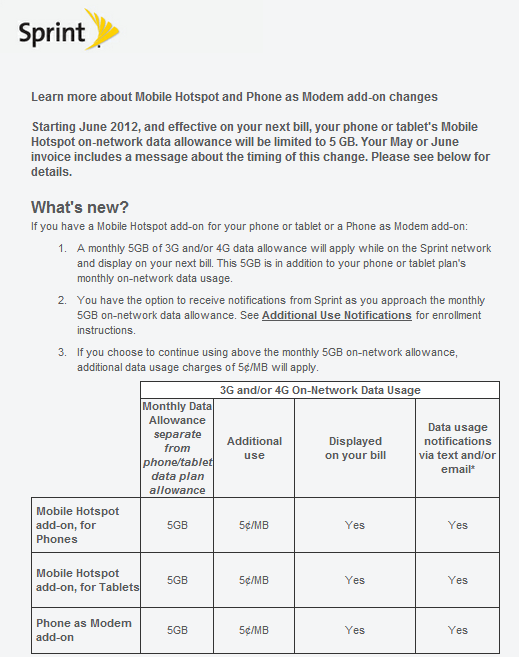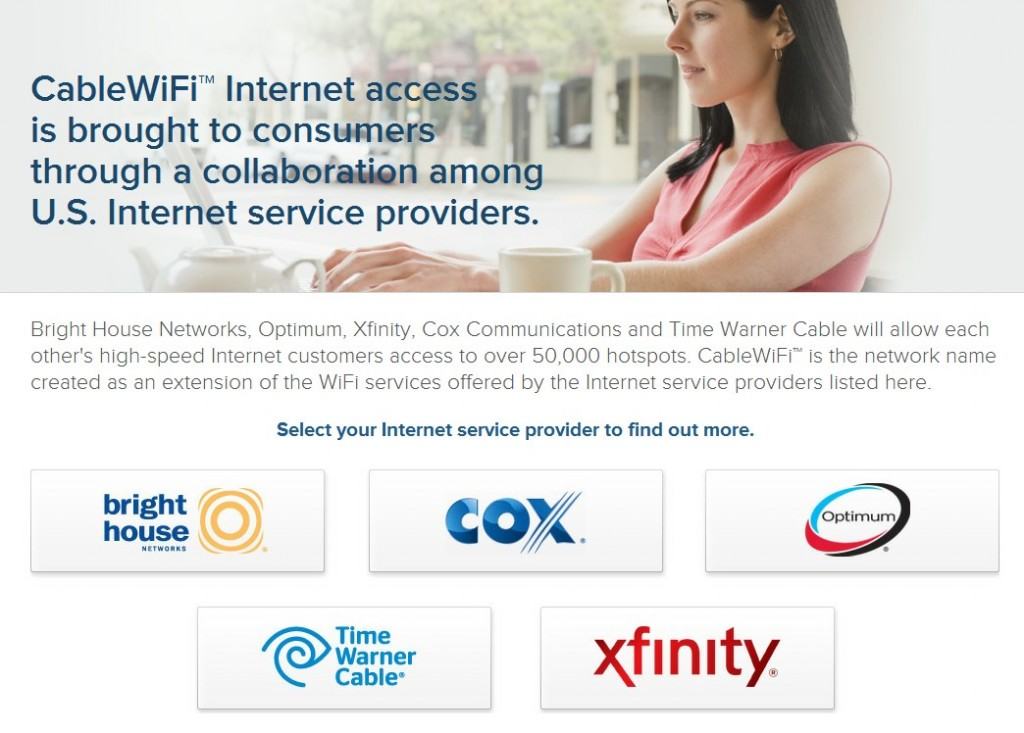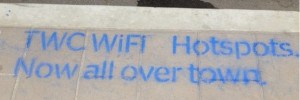 Time Warner Cable is facing possible prosecution for vandalism over sidewalk graffiti the company used in Redondo Beach, Calif. to advertise its Wi-Fi network — a service the city claims the company has no authorization to provide.
Time Warner Cable is facing possible prosecution for vandalism over sidewalk graffiti the company used in Redondo Beach, Calif. to advertise its Wi-Fi network — a service the city claims the company has no authorization to provide.
Redondo Beach officials immediately began receiving complaints the morning of July 5 when Time Warner Cable’s blue chalk advertising messages began appearing all over the city’s sidewalks.
City councilman Steve Aspel told the cable operator’s director of government relations that constituents were upset about the large promotional messages.
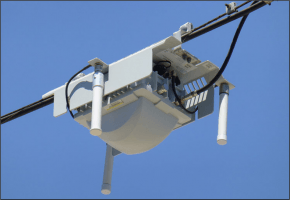
Time Warner’s Wi-Fi equipment (City of Redondo Beach)
“It really pissed me off and everybody in the neighborhood too,” Aspel told Time Warner’s Steven Sawyer. “Please have your company never do that again.”
Aspel told Sawyer nobody knew the messages were written in chalk, which will likely dissipate in a few days or sooner in any significant rain storm. The thought the cable company might have used blue paint on public sidewalks enraged several local residents.
But city officials were even more concerned about the fact Time Warner Cable has a Wi-Fi service up and running in Redondo Beach, without any permission from city officials to either install or operate it.
Assistant City Manager Marissa Christiansen told the council Time Warner was not allowed to operate any Wi-Fi network inside the city without explicit permission from the council. The city had been negotiating with the cable operator to grant permission to install the necessary Wi-Fi hotspots in the city’s right of way, but the cable company went ahead and installed them anyway, according to city manager Bill Workman.
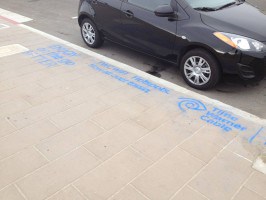 “When we actually saw the markings on the sidewalk and put two and two together that it had all gone on without all the things we had discussed in those meetings, we, too, were very upset,” Workman said. “Very clearly, this is outside of their state franchise.”
“When we actually saw the markings on the sidewalk and put two and two together that it had all gone on without all the things we had discussed in those meetings, we, too, were very upset,” Workman said. “Very clearly, this is outside of their state franchise.”
Cable operators also require a building permit to install new equipment on public property.
Sawyer told the city council Time Warner apologized for the sidewalk markings, and the company moved quickly to remove them.
“We’ve done these markings in other cities and have never had an issue,” Sawyer said.
City attorney Mike Webb said there is an active criminal investigation underway to determine if the sidewalk messages are criminal graffiti, and was not in a position to elaborate as to if or when the cable operator would be prosecuted for violating the city’s municipal code.
Discussions about the Wi-Fi service itself are reportedly ongoing.
Time Warner Cable is planning major expansion of its network of Wi-Fi hotspots across southern California and into other service areas nationwide in the coming years.
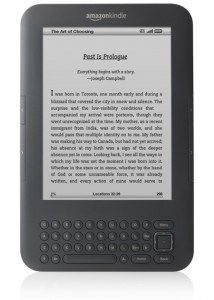 Amazon.com has quietly introduced a 50 megabyte usage cap on Kindle owners using 3G-equipped models to browse web pages over AT&T’s 3G wireless network. Customers exceeding the limit after July 1 reportedly began receiving this pop-up message on their device:
Amazon.com has quietly introduced a 50 megabyte usage cap on Kindle owners using 3G-equipped models to browse web pages over AT&T’s 3G wireless network. Customers exceeding the limit after July 1 reportedly began receiving this pop-up message on their device:

 Subscribe
Subscribe


